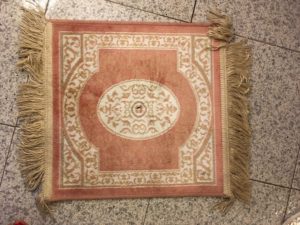This week started out very interesting. After the adventure I’d had the past weekend in Nemi, I had a relatively relaxing week.
Sunday, I went to a contemporary art museum. Each first Sunday of the month, museums offer free admission. My appreciation of contemporary art started during the winter of 2015 when I went to a museum in Vienna. Since then, I have been fascinated in the narratives and mediums in which contemporary art manifests itself.
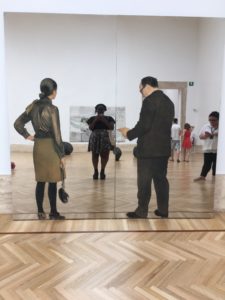
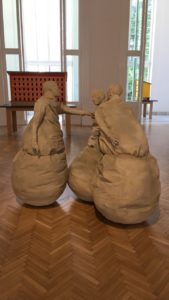
Since August is the month of vacation for Italians, our instructor left on vacation and we have a substitute. Monday in class, we talked about racism, the European immigrant crisis as it pertains to Italy, and political correctness, or the lack thereof in Italy. It was a really refreshing conversation to have with an Italian, and our teacher, Martina, was very interested to hear what we had to say on the subject. Martina had just returned to Italy in May from a Fulbright fellowship in the U.S. and expressed to us the large influence that the U.S. plays on Italy. We read an article about a Senegalese musician in Italy, McTalibe. He was going into a radio interview, and the interviewers wanted to play an innocent prank on him. They knew he had a large family with lots of siblings, and they were planning to call a vacation apartment rental for him that they knew would be too small for his family. The joke was that they would ask the landlord if there was room for his 27 brothers. Once they called the landlord, however, and she found out that he was a Senegalese immigrant, the apartment was suddenly unavailable. One of his Italian radio counterparts called the same woman to ask about the availability of the space, and she told him it was at his disposal.
Following that, we talked about the large number of northern African and middle eastern refugees who have had to flee their homes to come live in Europe. One of my classmates is partially Italian and has relatives who live in northern Italy. Upon visiting them, he told us that his cousin expressed hate for refugees. Her idea was that they would just come into the country and take welfare, but didn’t contribute to the economy or community in any way: they don’t spend money, they don’t work, and they don’t speak italian. This, to me, is such a narrow-minded view of people. If there were a way fro these people to stay in their countries, they wouldn’t leave the places they call home. Additionally, the process in order to obtain visas and resident documents is something that has to be taken into consideration. Not only is there a negative view of immigrants (and foreigners in general) in Italy, but there are many inappropriate terms and slang used to describe them. One thing I have noticed in Italy over the time spent here is the lack of political correctness. The United States has it’s own (and larger) issues when it comes to racism, but one thing that activists and anyone sensitive to the racial divide are sensitive to is the language we use to talk about one another. Here, I think it is more accepted to use inappropriate and targeted language because, to those Italians, its a joke. They are “playing.” Despite the issues that these terms and attitudes breed, I can’t help but see it as “racism lite.” I don’t want to seem like I am discrediting the gravity of the immigrant crisis and I certainly don’t condone or agree with the ideas, but in light of recent events in the United States, I can’t help but dread my return. After I read this article, I was deeply upset and disappointed at the lack of reaction that I witnessed from the nation.
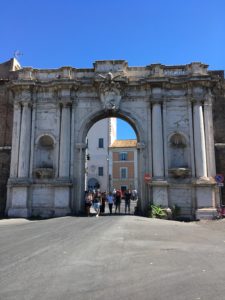
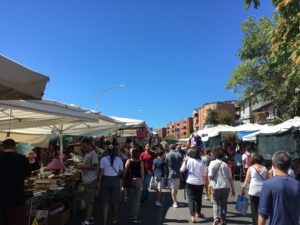

On a brighter note, today, I was went to the historic Porta Portese market. The largest and oldest market in Rome, the Porta Portese market is famous to locals and tourists alike. There are a variety of items from clothing and shoes to antiques and even antique alcohol. I ended up buying earrings for my mom and sister and a rug for my apartment!
